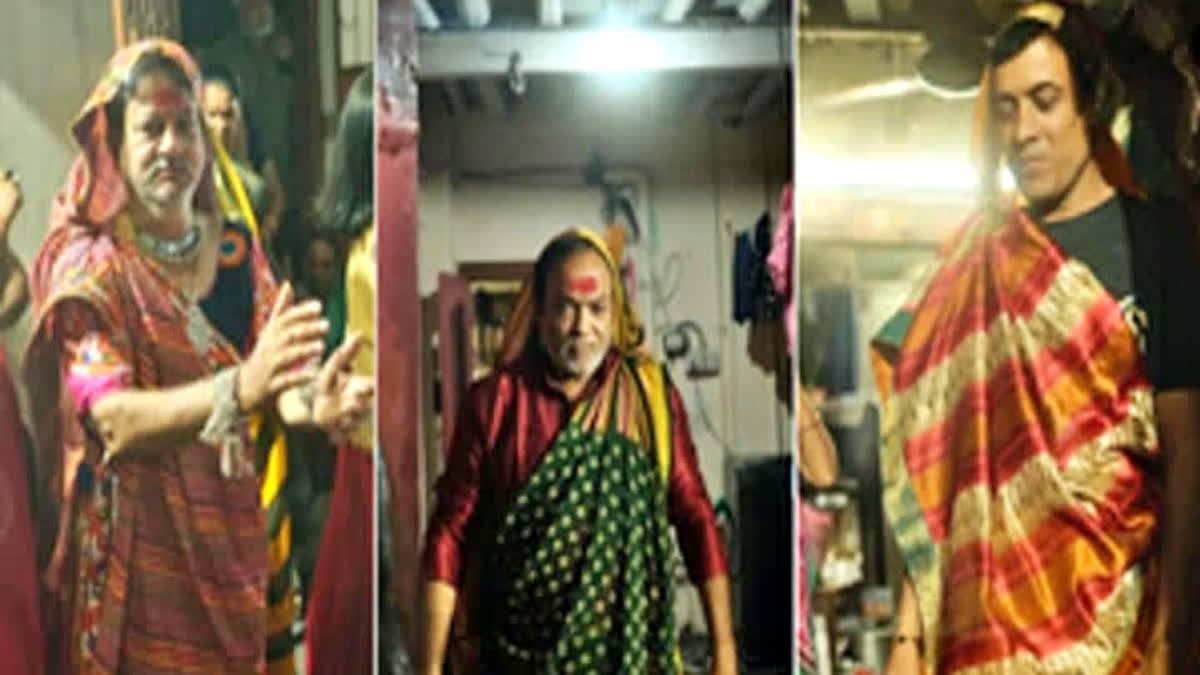Ahmedabad: As the Navratri festivities commence across the country on Thursday, a unique tradition in the heart of Ahmedabad's old city draws everyone's attention. In Sadu Mata Ni Pol, a 200-year-old ritual unfolds each year on the eighth night of Navratri, when men from the Barot community wear sarees and perform Garba to honour an ancient curse.
This age-old tradition symbolises penance and a fascinating story of devotion and gender-bending customs passed down through generations. This ritual is more than just a dance; it is a deeply rooted tradition steeped in history, legend, and faith.
In this century-old custom, men dress up as women to atone for a curse placed on their ancestors by Sadu Mata, a woman whose story has been passed down through generations. According to local belief, over 200 years ago, a woman named Saduben sought protection from the men of the Barot community when a Mughal nobleman demanded her as a concubine.
Sadly, the men did not defend her, leading to the tragic loss of her child. In her grief and anger, Saduben cursed the men, declaring that their future generations would suffer as cowards, and committed 'sati'. Sadu Mata Ni Pol, which houses over 1,000 residents, comes alive on the night of Ashtami.
The pol, filled with narrow lanes and old-style homes, is a living relic of Ahmedabad’s heritage. Crowds gather to witness men in sarees, twirling gracefully to the beats of Sheri Garba, a folk dance passed down through the generations. A temple was erected to appease Sadu Mata's spirit and lift the curse.
Every year, on the night of Ashtami, men from the community gather at Sadu Mata Ni Pol, don sarees, and perform Garba as an act of penance. This custom, still alive today, draws crowds from all over the city, curious to witness this powerful display of tradition and devotion.
While modern interpretations may associate the act of men dressing as women with bending gender norms, for the Barot community, it is a symbolic gesture of humility and respect. The ritual is believed to not only atone for the sins of the past but also to honour the blessings granted by Sadu Mata.
